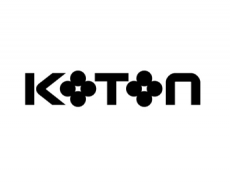Koton
Koton
Engaging disadvantaged women from Turkish South-Eastern Anatolia and Aegean Regions as embroiderers for Koton’s Hand Crafted Collection.
BCTA MEMBERSHIP STATUS
Alumni
SECTOR
Consumer Goods
HEADQUARTERS
Turkey
REGION OF INITIATIVE
Eastern Europe & Central Asia
SDG CONTRIBUTION
RELATED NEWS
Koton, one of Turkey’s premier textile manufactuers, joined Business Call to Action (BCtA) in May 2017 with a pledge to integrate 2,900 low-income women in south-east Anatolia into its growing value chain by 2018. To achieve this goal, the company offers training and employment opportunities that increase their household incomes by up to 50 percent and provide many women with their first formal employment.
In Turkey, rapid growth in living standards has created a huge increase in demand for consumer goods. However stark inequalities persist, especially in rural areas where there are few employment opportunities. While women from rural areas of regions such as Anatolia are known for their handiwork, there are few accessible markets for their creations.
Koton was established in 1988 when founder Gülden Yilmaz invested USD 2,000 to open a small clothing store. In the years since, the company has grown into a global fashion brand and Mrs. Yılmaz has become one of Turkey’s most successful women. Yet she remains committed to empowering other women’s success through entrepreneurship.
Last year, the company began engaging women artisans from Anatolia in producing the company’s fashion apparel. Although producing its “Hand-Crafted Collection” by hand costs more than using machines, the women’s artisanal craftsmanship adds value to Koton’s brand: urban customers love the look and feel of hand-embellished textiles.
To capture the essence of traditional embroidery, the company reached out to women from the south-east Anatolia, an area with little access to formal employment or markets for its handicrafts. The embroiderers work in the offices of Koton’s NGO partners, within their home region.
Koton’s team creates the designs, distributes basic clothing pieces to the artisans and collects the embroidered pieces. The company’s supply chain team also visits the artisans weekly to provide quality assurance and ensure that the embroiderers have everything they need to create beautiful, high-quality products.
Koton rolled out its Hand-Crafted collection in 60 stores in 2016. The collection initially consisted of 22 patterns, with over 11,626 individual items in total – each one embellished by hand. Although the craftswomen Koton contracted were already skilled embroiderers, most were housewives who had never before been paid for their work. They now receive regular pay for their products, providing a major boost to family incomes.
As a result consumer demand, the company has expanded its handmade offerings in 2017. Koton plans to integrate at least 2,900 low-income women into its textile value chain. In addition to online sales, it aims to offer its Hand-Crafted Collection in 500 stores by 2018 – providing incomes to even more rural women and boosting their families’ living standards.




